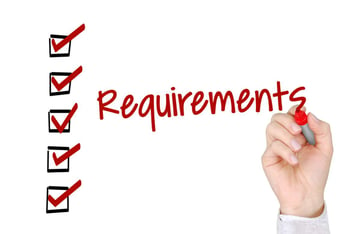8 Steps to Training (and Retaining) a Real Estate Virtual Assistant
Published October 12, 2021. Updated October 5, 2023.
How can property managers and real estate professionals transition a new VA into a successful new team member? Once you find the ideal virtual assistant for the role you want to fill, some critical steps must take place to ensure your new independent contractor becomes a valuable and productive new asset for your team.
Adding a real estate virtual assistant to your team can be a bit different than bringing on a new in-house team member for your real estate business. Still, the right VA could be the best new addition to your business and efforts to scale your company.
We've worked with a lot of companies and virtual assistants to help them create productive teams and environments. When onboarding a new virtual assistant, these eight steps can help you train (and retain) a long-term VA!
1. Implement Training
Whether you have a training system with manuals and videos or not, it's critical to train your new remote assistant well from the start.
If you're wondering how to train a virtual assistant, start by spending time with them during their first few weeks on the job to walk them through processes, software, communication methods, and deliverables for their role.
If you don't currently have a documented training process for your real estate business, your new VA can build the training manual and videos for the job role while they train. Doing this enables them to train the next person or other virtual assistants added to your remote teams as you build your workforce.
2. Treat Your Virtual Assistant As Part of the Team
Though your virtual assistants are often categorized as independent contractors, treating them as integral members of your team is crucial. By integrating a remote assistant effectively, not only do they feel more welcome, but they also realize their pivotal role in the company's success.
Involving your VA in regular team meetings ensures they are updated and aligned with the company's objectives and strategies. This fosters a sense of belonging and keeps them in the loop about ongoing projects and goals. Additionally, adding them to your primary internal communication channels, such as Slack or Teams, makes day-to-day correspondence seamless and straightforward.
Going a step further, featuring your virtual assistant's photo and bio on the company website adds a personal touch. It showcases their importance within the organization and acknowledges their contributions. However, beyond these integrative actions, it's vital to actively listen to your VA's feedback. Their unique perspective can offer fresh insights and solutions that may have been previously overlooked.
Even though they work remotely, integrating your virtual team members into your expanded team is a crucial element of an effective training program to help your VAs ramp up quickly and stick around long-term.
3. Establish Communication Protocols
Establishing communication protocols with virtual assistants helps property managers and real estate businesses check in with remote team members. However, having team members constantly on a video conference to monitor work tends to exhaust their local computer resources and can give a "big brother" vibe.
Instead, create a policy that virtual contractors must have their cameras on for video meetings. Then, utilize Slack or other instant messaging services to communicate throughout the day.
Having team members stay logged into these tools can also help see that your virtual assistant is working during office hours. They'll also be readily available for questions or directions on a task.
4. Ask for Feedback
Listening to and valuing feedback from your remote workforce is not just a matter of courtesy but a strategic step in cultivating a robust and effective team. When these professionals feel heard and understood, it nurtures a positive relationship between them and your property managers, which is pivotal for long-term success.
Furthermore, when virtual assistants are given the platform to voice their opinions and concerns, it instills a sense of ownership over their roles. This empowerment often results in increased dedication and commitment to their tasks.
Many groundbreaking ideas and innovative changes in processes stem from those who are on the front lines. These team members, immersed in their daily tasks, possess firsthand experience and knowledge that can be invaluable.
Managers who actively seek and implement feedback from their virtual assistants not only optimize operational efficiency but also foster a culture of collaboration, trust, and mutual growth.
5. Give Them Authority
Once your virtual assistant is fully trained and understands the job role, begin giving them more authority to make decisions and recommendations to processes that they own.
By empowering your real estate virtual assistants to take ownership, you will be rewarded with fewer escalations, less stress, happier team members, and a better customer experience.
6. Delegate—Don't Abdicate
Companies in the real estate industry must understand the vital difference between delegating and abdicating.
-
When delegating, you give team members responsibility for a task or project but stay in the information loop.
-
However, abdicating means you turn over the responsibility and remove yourself from the information loop.
Delegating is an excellent way to remove tasks from your plate while maintaining accountability for tasks and projects. Knowing how to delegate (without abdicating) helps you reduce stress and retain your best virtual assistants!
7. Meet Regularly
Beyond establishing communication guidelines, it's essential to have regular meetings with your virtual assistant.
After your initial onboarding sessions, where your VA becomes familiar with their role, the company's core values, and operational procedures, it's wise to organize weekly reviews to discuss KPIs, deliverables, assignments, and upcoming deadlines. These sessions also offer a valuable opportunity to gather feedback, ensuring your virtual assistant integrates smoothly and becomes an efficient team member.
8. Deliver Competitive Compensation
Build a compensation plan that will continue to motivate your team members and pay them at the market or above market price.
Many real estate industry professionals who choose a virtual assistant want to pay the assistant an hourly rate—often very low—while expecting a long-term commitment and success. However, to retain better quality VAs that deliver quality work, the better your contractor compensation plan is, the better your chance of long-term success.
When compensating your remote team member, create a plan that considers the following:
-
A competitive hourly rate
-
If you will pay overtime or not
-
A bonus structure
-
An internet or computer stipend
While providing all these items to your virtual assistant is unnecessary, arranging better compensation can help a property manager attract and keep more quality VAs for the long haul.
Bonus Tip: Start With Skilled, Industry-Trained Virtual Assistants
One of the best ways to build remote teams and keep VAs long-term is to start with virtual assistants with real estate industry training. These VAs already understand the business, require less upfront training, and can integrate better into your company and workforce.
The best place to find industry-trained real estate virtual assistants is right here through VPM Solutions! Though we started by specializing in workforce outsourcing for property managers, we expanded to providing virtual contractors for the real estate industry, as well.
Many of our remote assistants have already worked for companies in the US real estate industry. Additionally, all VAs have free access to our VPM Academy, which provides training courses and certifications for a wide range of real estate industry concepts, strategies, and tasks.
Find, Train, and Retain a Real Estate Virtual Assistant Through Virtual PM Solutions!
Ready to find your next real estate virtual assistant? With these eight tips (plus a bonus tip) to build your remote workforce successfully, all you need is the right platform and thousands of qualified VAs available for you to find your ideal assistant!
VPM Solutions makes it easy (and free) for real estate companies to set up a company profile and connect to qualified virtual assistant services with property management and real estate experience. Learn more about how it works when you schedule a Free Strategy Session!



%20(S).jpg?width=1200&name=Welcome%20Aboard!%20(R)%20(S).jpg)
%20(S).jpg?width=1200&name=Young%20woman%20talk%20on%20video%20call%20with%20female%20friend%20(R)%20(S).jpg)


















